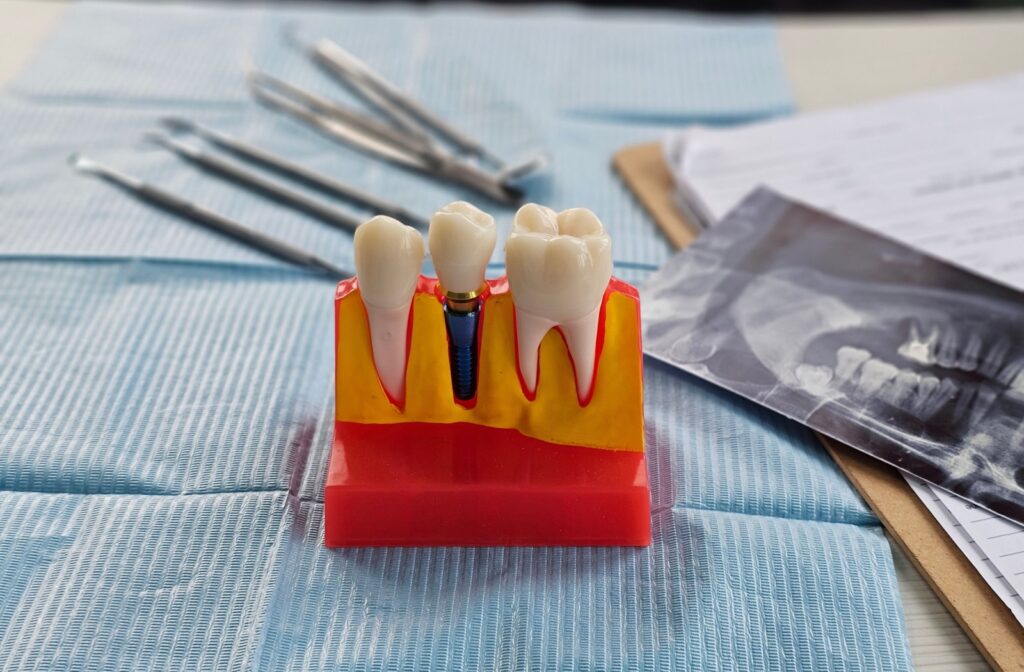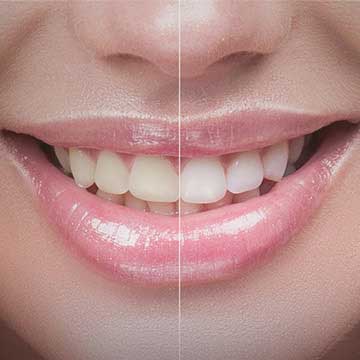Root canals are often viewed as one of the most intimidating dental procedures. Yet, the treatment can help save your natural tooth—making it a practical choice for preserving oral health.
With proper care, the results of a root canal treatment can extend the life of your natural tooth. The procedure typically takes 90-120 minutes, depending on the complexity.
How long your root canal results last depends on several factors, including the extent of the damage, ongoing dental hygiene, and any additional dental issues that may arise, such as gum disease or teeth grinding.
Whether you’re preparing for an upcoming root canal or just looking for answers, our dental team can provide personalized information based on your needs.
What Is a Root Canal?
A root canal refers to both the “canals” or the hollow area inside your tooth that contains soft tissue. A root canal treatment, commonly simplified to just a root canal, is designed to save a tooth that has become damaged, infected, or severely decayed.
Inside your tooth is a soft tissue called the pulp, which contains nerves, blood vessels, and connective tissue. When the pulp becomes infected due to deep cavities, cracks, trauma, or repeated dental work, it can cause severe discomfort and swelling.
During a root canal treatment, the dentist removes the infected pulp, cleans and disinfects the canals inside the tooth, and seals it to prevent further infection. A dental crown is often placed on top of the treated tooth to restore its strength and functionality.
Why Are Root Canals Needed?
Root canals are essential to treat issues like severe tooth discomfort, sensitivity to heat or cold, swollen or tender gums, or discoloured teeth caused by infection.
When tooth damage or infection is left untreated, these problems may lead to abscesses (pockets of pus), bone loss around the tooth, or the loss of the tooth entirely.
A root canal isn’t just about relieving discomfort—it’s about protecting the structural integrity of your teeth and maintaining overall oral health.
What Can Affect the Longevity of a Root Canal?
The lifespan of the restoration after a root canal depends on several factors, including the tooth’s initial condition, the quality of the procedure, and how well you care for it afterward.
1. Extent of Damage to the Tooth
The severity of the infection or decay before treatment plays a significant role. If the tooth was weakened or had substantial structural damage, it may require extra care to support long-term success.
2. Quality of the Dental Work
The skill and precision of the dentist performing the root canal are crucial. An experienced professional will thoroughly clean the tooth, seal it appropriately, and restore it with a strong, well-fitting crown. Poor dental work can lead to leaks, reinfection, or complications later.
3. Placement of the Treated Tooth
Molars (back teeth) undergo more pressure from chewing than front teeth, which makes their restoration more prone to wear and tear. That said, carefully designed crowns can help distribute force and protect these teeth.
4. Oral Hygiene Habits
Maintaining consistent oral hygiene is a critical factor. Regular brushing, flossing, and rinsing with appropriate mouthwash help prevent decay or gum disease from compromising the treated tooth.
5. Additional Dental Issues
Issues like gum disease, bruxism (teeth grinding), or adjacent tooth problems can shorten the lifespan of a treated root canal. Addressing these concerns promptly is essential to keeping your teeth healthy.
How Long Can a Root Canal Last?
Several studies show success rates as high as 95% when proper aftercare is followed.
While there’s no universal answer, most treated root canals can last for many years with minimal issues, primarily when the procedure is skillfully performed and paired with good oral hygiene practices.
Tips for Making Your Treated Root Canal Last Longer
The good news is that many steps to protect your treated root canal are simple and easy to incorporate into your daily routine.
Follow a consistent oral hygiene routine. Brush twice daily with fluoride toothpaste, floss regularly, and use an antibacterial mouthwash to help reduce plaque buildup and maintain healthy gums.
Replace the crown when necessary. A well-fitted crown helps protect your treated tooth. Over time, crowns may wear down or re-decay so replace them when your dentist recommends.
Address bruxism. If you grind or clench your teeth, consider wearing a nightguard to prevent damage to your crown and reduce pressure on your teeth.
Make routine dental check-ups a priority. Your dentist can assess your overall oral health, including how well previous dental work, like your root canal treatment, is doing, to spot any potential problems early.
Avoid using your teeth as tools. Opening packages or biting hard objects like pens or ice chips can cause fractures, cracks, or damage to your crown.

Signs You May Need a Retreatment
While most root canals are successful, there are cases where retreatment might be necessary. Here are some warning signs to watch for:
- Persistent & severe discomfort around the treated tooth
- Swelling or tenderness in the gums near the treated area
- Recurring sensitivity to heat or cold
- An abscess (pimple or bump) on the gum near the tooth
- Discolouration of the treated tooth
If you notice any of these symptoms, schedule an appointment with us soon. Early intervention can prevent further complications.
When to See Your Dentist for Follow-Up Care
Regular dental check-ups are key to longevity, even if your teeth and gums feel healthy. During these visits, we can monitor the treated area for signs of wear, infection, or complications.
You should schedule an appointment immediately if you notice any sensitivity, sudden discomfort, or swelling around the treated tooth. We can assess the damage and suggest the required action, whether a simple adjustment, crown replacement, or retreatment.
At Otara Dental, we know that a root canal can do more than save a tooth—it protects your smile and comfort. With the proper dental care, most treated root canals can last a lifetime, allowing you to enjoy all your favourite foods stress-free. Contact us today to book an appointment to discuss what a root canal can look like for you.









